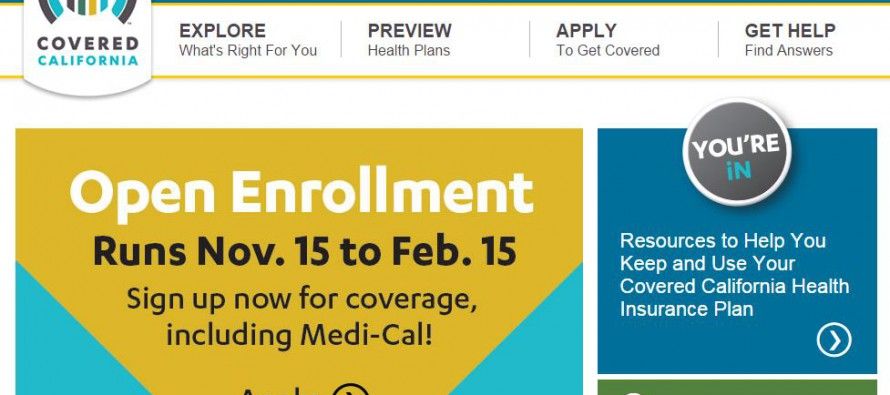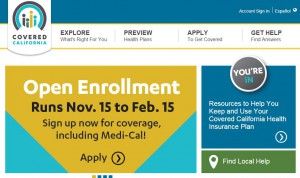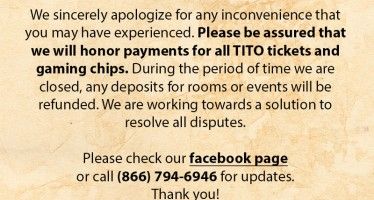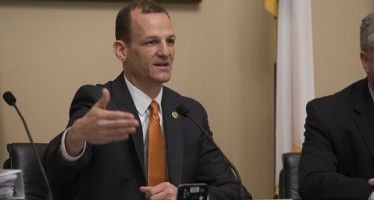Open-enrollment headache again strikes Covered CA

 If you thought the rollout of Obamacare was problematic last year, this year could be worse — including its implementation here, called Covered California.
If you thought the rollout of Obamacare was problematic last year, this year could be worse — including its implementation here, called Covered California.
State officials are still struggling to clear a huge backlog of Medi-Cal applications from the past year, while legislators field numerous complaints from frustrated constituents, insurance premiums are increasing and Medi-Cal renewals are down. The open enrollment period for 2015 begins Nov. 15.
“As much as the first year of enrollment was big and rocky, on some levels the second year is going to be harder,” said Covered California Executive Director Peter Lee at a recent Senate Health Committee informational hearing.
Both Lee and Department of Health Care Services Director Toby Douglas are proud of their progress in implementing Obamacare in California.
“We reduced the number of uninsured by 3.4 million people in this state, from 22 to 11 percent,” said Lee. “That’s the largest reduction by percentage in the entire nation. We can feel proud of California serving as an example for the nation how to do this right.”
“[We] have had tremendous success with the implementation of the Affordable Care Act,” agreed Douglas. “We have within our Medi-Cal program dramatically changed the perception. The perception overall is positive and it gets high marks.
“That being said, we’ve had challenges, many challenges with the process. We know our implementation has not been without problems. We have to continue to learn from those challenges, continue to improve it and make it a better experience for all of those, whether applying for Covered California or enrolling into our Medi-Cal program.”
Backlog
One of DHCS’s biggest challenges has been clearing the Medi-Cal application backlog. It had reached 487,000 pending applications in July, which were whittled down to 171,681 by Oct. 15. Nearly 1,400 applicants have been waiting a year to find out whether they’ll receive coverage.
This has not only been an embarrassment for state health officials, but it’s also illegal. State law requires that health insurance applications either be accepted or denied within 90 days. Several social advocacy organizations have filed a lawsuit to get the state to abide by its own law.
“There has been an increase recently,” acknowledged Douglas. “Covered California has been going through administrative renewals, and that has pushed populations over to Medi-Cal. And we know that there’s at least 40,000 that are duplicates that need to be denied within the system of 171,000. And there’s 20,000 where we’re looking at our administrative strategies that are eligible.
“We have been going through a lot of different enhancements to try to reduce the pending cases and bring it down. Our ultimate goal is we want all applications determined eligible in the required time frame. And we might still always have pending cases, because counties might be waiting for verification information. But we want to make sure that there is no one out there stuck and pending because of system problems.”
Renewal
Another challenge for Douglas is getting Medi-Cal recipients to renew their coverage. The renewal rate in 2013 was 60-70 percent in many of the state’s larger counties. But that range has dropped to 50-70 percent in 2014, with some counties below 50 percent.
That decrease concerns Sen. Holly Mitchell, D-Los Angeles. “This is deeply troubling,” she said. “We spend all this energy talking about congratulating ourselves about our enrollment numbers and that number will be a moment in time because we get to re-enrollment and we lose them.
“And the Legislature will have kneejerk reactions like, ‘Get rid of the status reports, get rid of this, get rid of that’ to try to fix that number. That’s why I ask what the problem is so we can be a partner rather than kneejerk to try to plug this hemorrhage – because that’s huge and a problem.”
Douglas responded, “We’re not sure. We delayed the actual disenrollments to get more outreach. We would have thought it would be the same. This is not what we wanted. We think it’s because it’s a new process. There’s been concern from community groups that … thought it was confusing. It’s going to take a lot of grass roots work to break down and understand this new process and why it’s different.”
Mitchell said the confusion is inherent in the way government does things.
“Government does a horrible job in communicating,” she said. “At first I thought it’s because we really don’t want to enroll people. And I don’t think that’s the case. We are bitten by the IRS bug. Every form we create we have to make it as complicated, use as many words and make it look as academic and unfriendly as possible. It’s not just you, it’s government across the board. I’m not sure why that is. We have a bad habit of making the process as difficult and complicated unnecessarily as possible.”
Lee disagreed: “We certainly don’t, as either a matter of habit or purpose, try to make things complex, as you know.”
That prompted Mitchell to laugh, saying, “It’s government – we can’t help ourselves.”
Outreach
She also criticized the state’s education and outreach efforts to blacks.
“The effort in the first go around was lackluster,” she said. “And we need to have a clear conversation and commitment around who is engaged and contracted to do the advertising and outreach to this very specific and targeted community.
“I sponsored a [Covered California] storefront [in the Crenshaw mall] because I happened to think it was a great idea when I was approached by community-based organizations. But I have to say, I was quite disappointed at the outcome. We had five kazillion touches, but our enrollment numbers were nowhere near what I anticipated.”
Lee responded, “The Crenshaw mall enrolled not as many people as you thought it would and we thought it would. But a lot of people came and asked questions. And one of the things we learned is that it’s not a one-touch-and-done enrollment process. So the fact of having a storefront where people can come in, ask questions, take material home, come in again and then maybe go enroll with an insurance agent at that storefront we say, ‘Hallelujah, wherever you are enrolling is OK.’”
Calls
Committee Chairman Sen. Ed Hernandez, D-West Covina, voiced a complaint made by legislators at an Assembly Health Committee hearing on Obamacare in September.
“My office on a regular basis is getting calls,” he said. “They get funneled up to Sacramento. These are people who are in support of the Affordable Care Act. And they are just really upset. It can be anything from [a lack of] network adequacy to call time to wait time to length of time in Medi-Cal to get enrolled.
“So I want to make sure that not only California continues to be the leader, but absolutely most important that we address as many if not all of the concerns that the consumers of the state of California have.”
Sen. Bill Monning, D-Monterey, has also received numerous complaints from constituents.
“I represent rural areas where in much of my district there is no competition” among health insurance providers, he said. “Our phones are ringing off the hook with people who have coverage and can’t find a [health care] provider who will accept that coverage. So, coverage without access is not real coverage.
“We have a health care plan in Monterey County advising providers at a local hospital that diabetes prevention is not covered. It’s wrong. They are giving disinformation, turning people away. A major health plan that is our only health plan in the region of Monterey County is advising providers it will not cover preventing for diabetes.”
Lee said preventive care is covered, and insurance companies are reviewed annually to make sure they are providing adequate coverage.
“When we sit down with health plans, we don’t say the first question is: What’s the cost?” he said. “The first question is: Are there adequate networks of doctors, hospitals to make sure people get the necessary care? Not all, but in a number of cases there were areas where we specifically said there appear to be shortfalls in networks. And part of what plans came in with was expanded networks of hospitals or of doctors.”
Lee and Douglas assured the committee that they are working to fix the problems and improve service, but acknowledged that will take time.
Related Articles
CA deals Indian casino chaos
Despite generating huge revenues, California’s Indian casino industry has been dealt some questionable hands. Political interests have begun to swirl like
Assembly subcommittee flunks UC budget
Tuition hikes marched to the head of the class at a recent hearing of California Assembly Budget Subcommittee No. 2 on Education
CA Republicans to push immigration reform
Bucking their newly minted party leadership, several members of California’s congressional delegation have resolved to push ahead with a new




